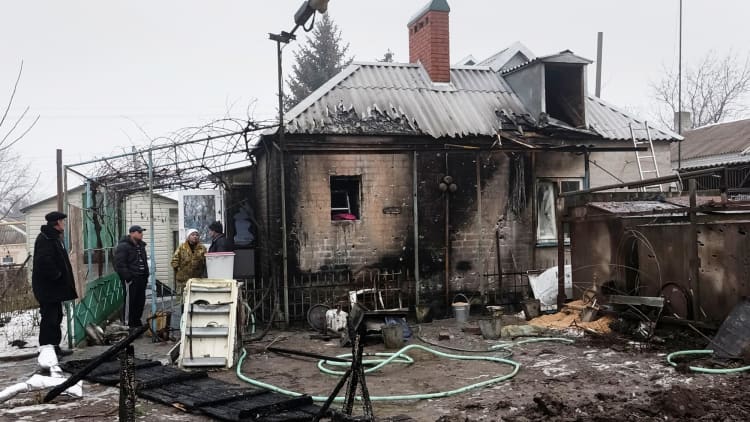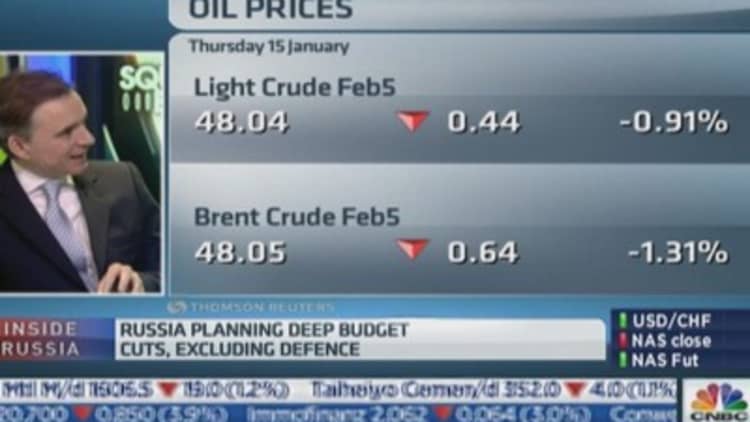The grip of Western sanctions around the neck of the Russian economy may be squeezed even tighter this week, as the death toll in the ongoing fighting in Ukraine rises.
New sanctions against Russia by the European Union are expected soon, after its heads of state called on the European Union (EU) to consider "further restrictive measures" in a statement Tuesday. More news on the extent of sanctions is expected after a meeting of the trading bloc's foreign ministers on Thursday afternoon.
The Financial Times became the first major Western media outlet to call for the West to arm Ukraine in an editorial published on FT.com Wednesday night, and in Thursday's print edition. This reflects a gradual hardening of attitudes among Western decision-makers towards Russia and its actions in the country.

The FT wrote of a "new and darker turn" to Russia's support for pro-Kremlin separatists in the eastern Ukrainian provinces of Donetsk and Luhansk in recent days. Separatists are reportedly closer to the strategic towns of Debaltsevo and Avdeyevka in Donetsk, which, if captured, would mark a key victory for the militia.
Since the outbreak of the conflict in mid-April last year, more than 5,000 people have been killed, according to the United Nations.
There are several ways the West could escalate sanctions against Russia: adding more sectors, organizations and individuals to the list of those already banned from trading, or extending the time frame of the existing sanctions.
What is key, however, is Russia's foreign currency reserves, which help the government bolster the economy against the negative impact of sanctions, and have enabled the Kremlin to stand firm.

If the reserves keep on being used up at the current rate, they will fall to be "what might be considered a prudent minimum level by the end of 2016," according to Neil Shearing, chief emerging markets economist at London-based Capital Economics.
Amid the clouds of gloomy economic data coming out of Russia, there was a rare bright spot in December's consumer spending. However, this is likely to have been a short-term effect garnered by advance purchases of discretionary goods, as panic about further ruble devaluation grew, according to Credit Suisse analysts.
The "darkest of clouds hang over the Russian consumer," according to the Credit Suisse Research Institute's "Emerging Consumer Survey," with food inflation at over 7 percent last year, and a still-falling ruble set to make foreign-bought goods even more expensive. This has not yet translated into falling support for Russian President Vladimir Putin, however, who remains popular in the country.
Greek drama
Not long after German Chancellor Angela Merkel warned about the growing Russian influence in the Baltics, focus has shifted to Greece, where the new Syriza-led administration pointed out that they did not approve Tuesday's statement about further Russia sanctions.
Greece has historically strong links to Russia, and the radical government might look like one of Russia's natural allies in the European Union. Greece's Russian ambassador was the first foreign dignitary to meet with new Prime Minister Alexei Tsipras, and he delivered a personal message of congratulations from Putin.
However, Greece's new Finance Minister, Yanis Varoufakis, wrote in a blog: "The issue was not whether our new government agrees or not with fresh sanctions on Russia. The issue is whether our view can be taken for granted."
- By CNBC's Catherine Boyle




